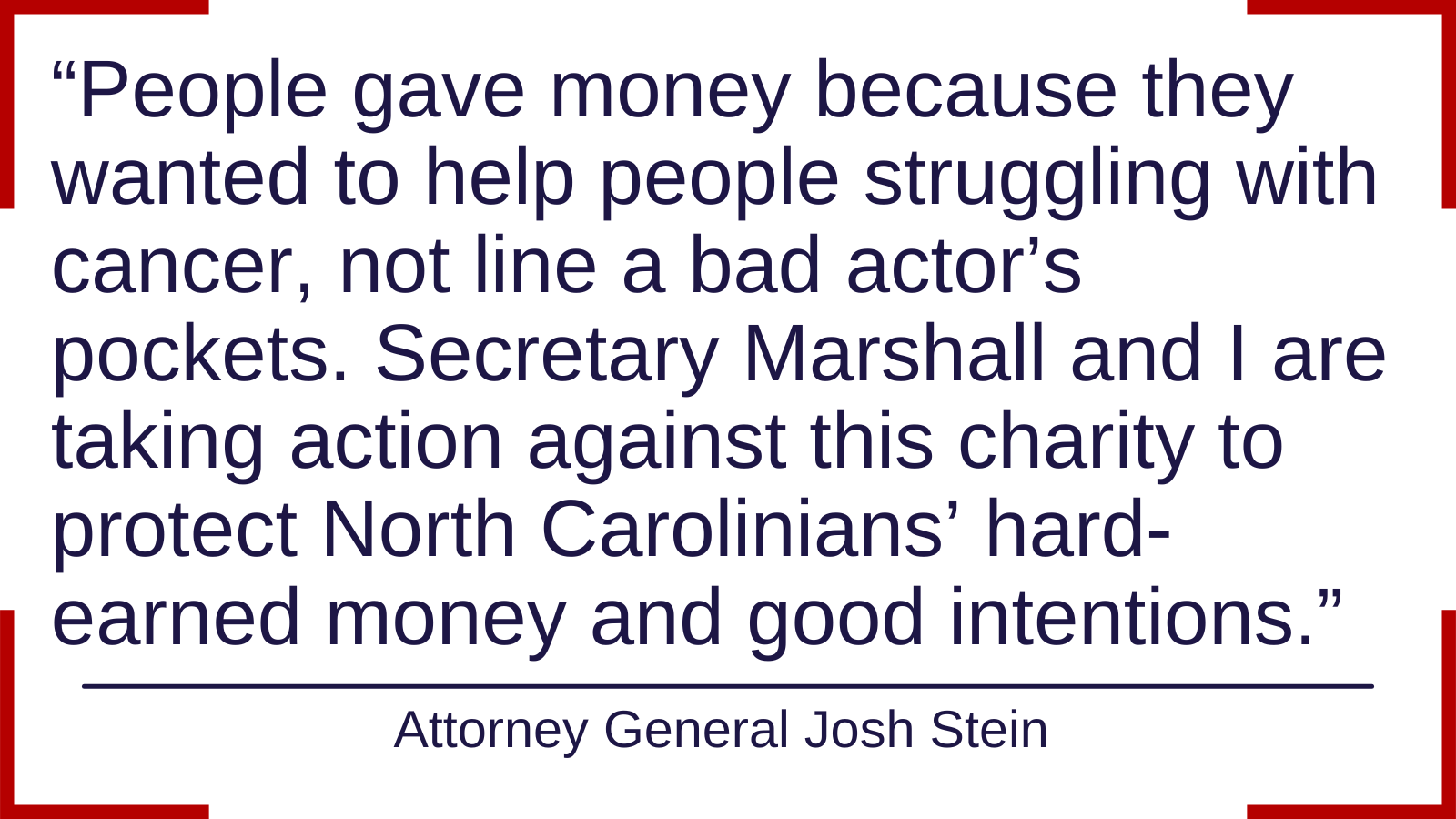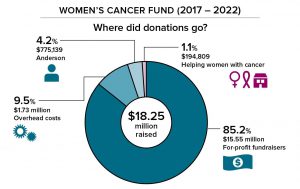
For Immediate Release:
Monday, March 11, 2024
Contact:
Nazneen Ahmed (919) 716-0060
(RALEIGH) Attorney General Josh Stein and Secretary of State Elaine Marshall today sued Cancer Recovery Foundation, International (CRFI), also known as the Women’s Cancer Fund, and its owner Gregory B. Anderson for allegedly deceiving donors and violating telemarketing and consumer protection laws. CRFI is a charity that claimed to provide financial aid to women with cancer and their families but only spent about one percent of donations on actually helping patients.
“People gave money because they wanted to help people struggling with cancer, not line a bad actor’s pockets,” said Attorney General Josh Stein. “Secretary Marshall and I are taking action against this charity to protect North Carolinians’ hard-earned money and good intentions.”
“Every time an organization like this cynically exploits folks’ charitable spirit it can damage the trust in all the good organizations working hard every day for those in need,” said Secretary of State Marshall. “So Attorney General Stein and I are proud to be part of this action to aggressively pursue justice for cancer patients and the giving public.”
CRFI allegedly collected more than $18 million from donors between 2017 and 2022, telling donors that the money would go to help families dealing with cancer pay for basic needs to “keep a roof over their head and the lights on so they can survive cancer today.” But only about one percent – $194,809 – went to help patients. The rest of the money went to pay Anderson, host for-profit fundraisers, and pay for overhead costs.
In 2021, Attorney General Stein and Secretary of State Marshall joined the Federal Trade Commission (FTC) in suing two of CRFI’s fundraising companies for deceptive solicitation practices.
If you want to donate to a charity, consider these tips beforehand:
- Choose the charities you know and want to support. Don’t give to one just because it called or emailed you. It may not be legitimate.
- Look into a charity’s ratings and prior complaints with the Better Business Bureau, Charity Navigator, Guidestar, the North Carolina Secretary of State, and NCDOJ’s Consumer Protection Division.
- Ask how the charity will spend your donation. You want as much as possible to go to people in need.
- If you’re feeling pressured to give immediately, don’t. Legitimate charities won’t pressure you.
- When you’re making your donation, pay with a credit card through the charity’s website or by calling a phone number you know to be legitimate. Credit cards are best for security and tax purposes, and you can dispute the charge later if there’s a concern.
- Consumers who have questions about individual charities or charitable solicitation activities can call the Secretary of State’s Charitable Solicitation Licensing Division at 888-830-4989, or visit the division at sosnc.gov/divisions/charities. You can also file a complaint at ncdoj.gov/file-a-complaint or sosnc.gov/divisions/charities/enforcement.
Attorney General Stein and Secretary of State Marshall are joined in filing this complaint by the FTC and the states of California, Florida, Maryland, Massachusetts, Oklahoma, Oregon, Texas, Virginia, and Washington.
A copy of the complaint is available here.
###

